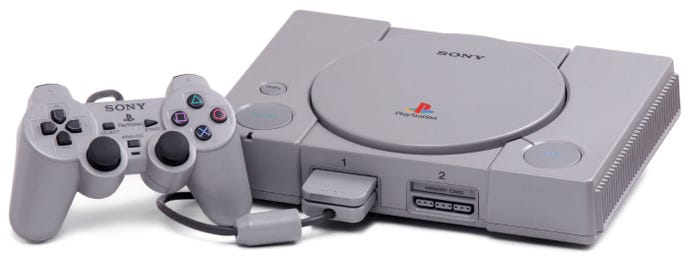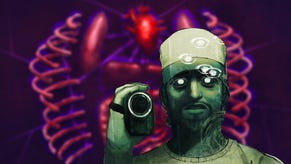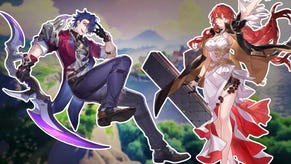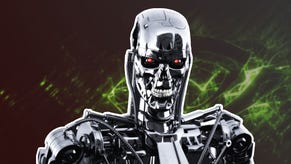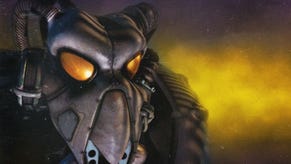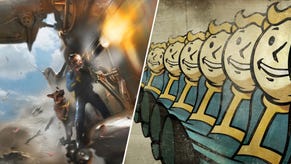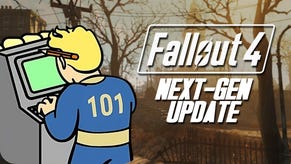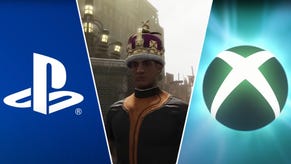USgamer Community Question: Which Console Evokes the Most Memories for You?
This week, it's time to think back and tell us which console packs your biggest memories.
This article first appeared on USgamer, a partner publication of VG247. Some content, such as this article, has been migrated to VG247 for posterity after USgamer's closure - but it has not been edited or further vetted by the VG247 team.
The last couple of weeks we've been talking about your favorite RPGS, and RPG characters. This week it's time to think about which video game console evokes the most memories for you. Perhaps it might be childhood memories elicited by Nintendo's first console, or maybe it might be something more recent - such as the myriad brilliant games you played on PlayStation 2?
Whichever console it is, we'd like to know - and don't forget to tell us why that system in particular holds so many memories.
While you think back over your past, here's what Team USG has to say about the consoles that evoke the most memories for them.
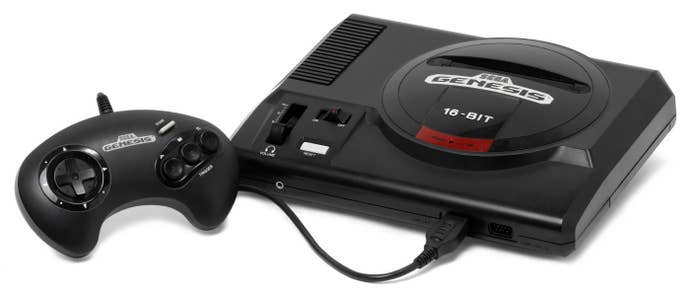
Jaz Rignall, Editor-at-Large
For my greatest console memories, I have to go all the way back to the Genesis - or the Mega Drive as it was known in the UK where I was living at the time. When I first saw pictures of it in a Japanese magazine I'd bought at a specialty book store near where I worked, it was love at first sight. After a generation of boxy systems, the console looked like something that truly heralded the future. It even had futuristic, unintelligible phrases stenciled on the front: AV Intelligent Terminal. High Grade Multipurpose Use. I didn't know what that meant - and still don't come to think of it - but it just sounded really damn cool.
Then I saw the screenshots of Space Harrier II, Super Thunder Blade and Altered Beast, and they looked amazing. At the time they were still cutting-edge coin-ops, and the Mega Drive iterations looked uncannily similar. Comparatively, the NES and outgoing Master System felt like they were being generation gapped in a most spectacular way. Don't forget - the Mega Drive appeared some two years before Nintendo would finally enter the 16-bit era with the SNES.
I knew I just had to have one, so I spent weeks calling around stores that I knew imported Japanese electronic goods. This was years before the import market really took off, so I basically had to find someone who could buy one for me and ship it into the country - and even then it wasn't quite plain sailing. I needed a 240-110 step-down transformer so that the 110 volt system wouldn't be melted by the British 240 volt mains current, and a specialty TV that could play an NTSC source (Britain has its own PAL system that isn't compatible with American and Japanese consoles). After a tremendous amount of effort, I tracked down both those items and patiently waited for my shiny new console to arrive.
It took weeks, but when the package finally did turn up, I remember opening it and seeing the system for the first time. It looked even cooler than it did in pictures, and the controller felt like some kind of futuristic ergonomic device - because contemporary controllers were basically flat square things. I'd asked the importer to see if he could buy any other available games, but the only games he'd managed to get hold of were Altered Beast and Space Harrier. It'd be almost a year before other games started being regularly released, but when they did, they were some of the best games I'd ever seen, including Ghouls and Ghosts, Thunder Force II, Golden Axe, Herzog Zwei and Revenge of Shinobi. Each of those games arriving in the office was an event, and people would crowd around the console to see just how good the games were. That feeling of utmost anticipation and excitement of getting a new Mega Drive game is an enduring memory for me, and has never been consistently matched by any other system.
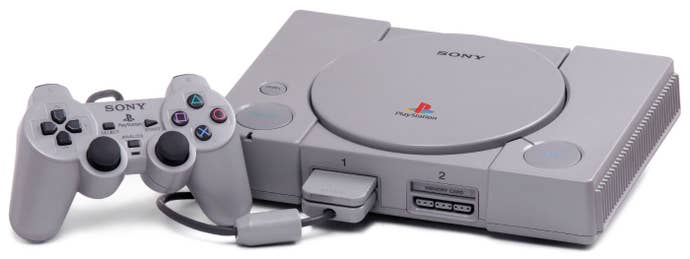
Mike Williams, Associate Editor
This was the console that carried me into adulthood. I've probably played a better overall library on other console, like the PlayStation 2, but the PlayStation was the start of a number of firsts. It's a formative part of my life.
The PlayStation was the first console I purchased on my own. My parents chipped in for the Nintendo 64; I bought most of the controllers and games with the money from my first job (working for the local version of GameStop), but I wouldn't have had the system if it wasn't for them.
It was also my first and only brush with piracy, as I had the console when I went to college and gained Ethernet for the first time (dial-up and AOL were still going strong back then). I ran PlayStation ISOs for a group because I had the speed they needed. That meant every game came across my computer. So I went and got my PS1 modded for a humble price. If something caught my interest, I just burned it on a CD-R, and was off to the races. It was wrong, but I probably wouldn't have played as many games as I did without piracy.
The PlayStation's accessories also mattered. The first iteration of the Dual Shock is a nightmare compared to the Dual Shock 4, but it was great at the time. The first real dual analog stick console controller was a winner. Or there's the Game Shark/Action Replay, which allowed me to "hack" my own codes to make weird things happen in my favorite games. Collecting scores of PlayStation memory cards, with their tiny blocks.
The PlayStation grew with me and when it came time to be an adult, the PlayStation 2 was there to pick up the slack. Yes, towards the end I had to turn the PS1 upside down due to cooling issues, but until it was retired, it was a good soldier.
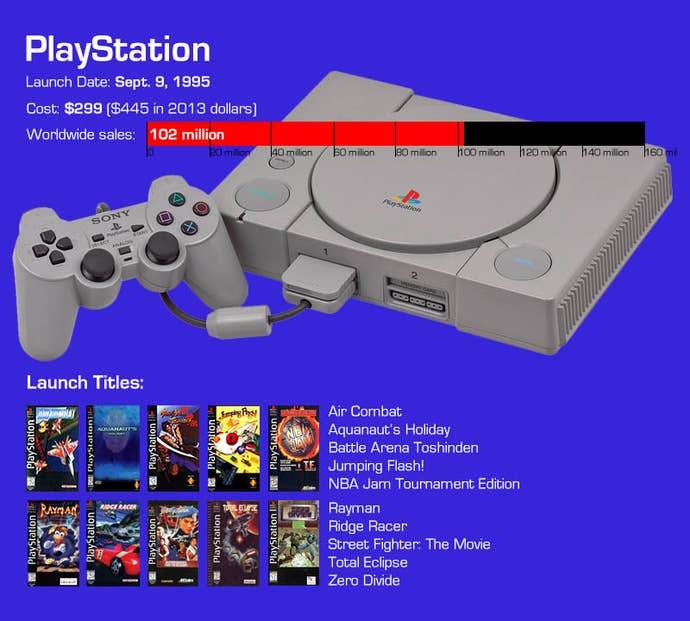
Kat Bailey, Senior Editor
There more than a few consoles that evoke strong memories for me. The NES was a big part of my childhood, the PlayStation dominated my high school years, and the Nintendo DS and PlayStation 2 were my consoles of choice while I was living in Japan.
But I'll go with the PlayStation since it played such a huge role in forming my current tastes. Being a rabid Nintendo fangirl in the mid-to-late 90s, I had mostly discounted the PlayStation in its early years, but that changed as I got older. Sometimes in 1999 or 2000, I borrowed a PlayStation and a copy of Final Fantasy VII from my friend, and I never looked back.
Final Fantasy VII, of course, was a monumental game. We kind of forget it now, but it was a truly staggering experience back in the late '90s. I had really enjoyed Final Fantasy VI, but it was Final Fantasy VII that hooked me for life. Along with Metal Gear Solid and Valkyrie Profile, it served as the foundation for the next phase of my development as a lifelong gamer.
The PlayStation was not exactly reliable, and it wasn't long before I had to turn it upside down to get it to read discs properly, but it still managed to last me until the end of college. I have many fond memories from that period, and several favorites still sit on my shelf today, including Final Fantasy VIII, Valkyrie Profile, Xenogears, and Super Robot Wars Alpha and Alpha Gaiden. As consoles go, it hasn't aged all that well; but in my case, the memories will last a lifetime.

Bob Mackey, Senior Writer
What with me first arriving, screaming and sticky, into this world way back in 1982, you'd think something from the 8 or 16-bit generation would currently occupy the nostalgia center of my brain. And sure, I have plenty of great memories of the NES, Super NES, and Game Boy-if not, I'd be a pretty lousy Retronauts host. Still, the console that warms my heart the most is the one that put me in charge of my gaming fate: The Sony PlayStation.
While I'd purchased games for older systems in the past, most of the funds for these purchases came from Christmas and birthday money, meaning that I could only add to my library twice a year-which is why I did so much renting. By the time the PlayStation rolled around, though, I had something resembling an income, though not much of one. To my parents' credit, they didn't put a lot of pressure on me to get a part-time job during high school-I guess they wanted me to get a few more years in before having my spirit crushed by the working world-and since I didn't learn how to drive until college, no car demanded monthly tributes for gas, oil changes, and insurance. So, for roughly 5 months out of the year, I'd mow my grandmother's lawn for $20 a week-not a bad wage for mid-to-late-'90s-bucks.
It seems strange to think of new retail games costing more 20 years ago, even without accounting for inflation, but that's just how things shook out in the cartridge era. I even remember the distinct amounts I spent on certain games, because, to a kid, these prices seemed like nearly impossible sums of money: $79.99 for Final Fantasy III, $72.99 for EarthBound, $59.99 for Super Mario RPG. The PlayStation era changed all of this by bringing about the $49.99 standard that would even drop as low as $39.99 in some cases-then their Greatest Hits line showed the world games just a few years old could easily go for $19.99. When you're only pulling down $80 a month, price drops like these are definitely meaningful.
So, I took advantage of Sony's consumer-friendly prices, and generally gravitated towards RPGs for the sake of practicality. Of course, I loved the genre, but if a game guaranteed to give me 50 hours of play instead of 8, it made for a much better proposition. So, with no real job to speak of and limitless free time, I spent my summer months of the PlayStation era consuming nearly every RPG that released on Sony's console-even dreck like Guardian's Crusade, for crying out loud. This era really cemented RPGs as my favorite genre as I spent countless hours grinding for levels while the faint smell of freon wafted towards me from an ancient, window-mounted air conditioner. Thanks, mom and step-dad, for understanding that those pre-adult years are made for wasting.
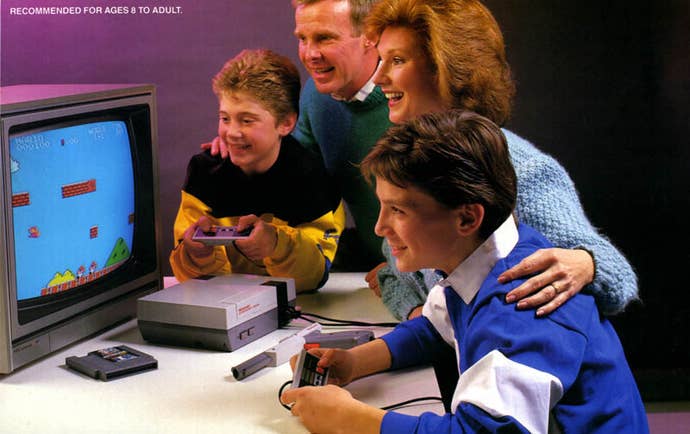
Jeremy Parish, Editor-in-Chief
Hey, this one's tough. I can think of three consoles that hit my memory bits the hardest, and each speaks to a different era of my life. The Nintendo Entertainment System was the playground on which I forged my personal tastes as a child and adolescent; the PlayStation was where I realized I'd be playing video games for the rest of my life, as an adult; and the DS eased me into a hardscrabble life of making a living by writing about video games. Of the three, though, I think the NES best fits the intent of this feature — it was, loosely speaking, where I cut my gaming teeth.
I loved video games from a very young age, and I didn't really care about any sort of industry crash. Even if retailers didn't want to sell me video games in the mid '80s, I still wanted to play them. When the NES arrived, I knew I had to own it... and while it took me a while to get to that point, what with the meagre earnings of an elementary school student, eventually my brother and I saved up enough to go in together on an NES. He played it occasionally; I played it constantly.
The first game I bought for our NES was Metroid, which shaped my fascination with rambling, maze-like adventures in action game form. I borrowed no end of other games from friends, from Gumshoe to The Legend of Zelda to Final Fantasy to Power Blade. I bought what games I could afford, and rented practically everything else I could get my hands on.
I developed a voracious appetite for games, and quickly gained the ability to tear through the toughest adventures in the space of a weekend. My friends would lend me games they didn't get or didn't care to finish, almost apologetically, and I'd return them the following week having completed them. I'd map out virtual worlds in comprehensive detail on graph paper, imagine sequels to my favorites, keep sprawling lists of passwords.
NES games were social, too. Besides trading games with friends, we'd hang out and play them together late into the night on weekend, we'd swap tips at school, we'd contemplate our next purchases while poring over game magazines. I've probably spent more cumulative time with other systems through the years, but none of it was quality time the way my NES exploits were.
